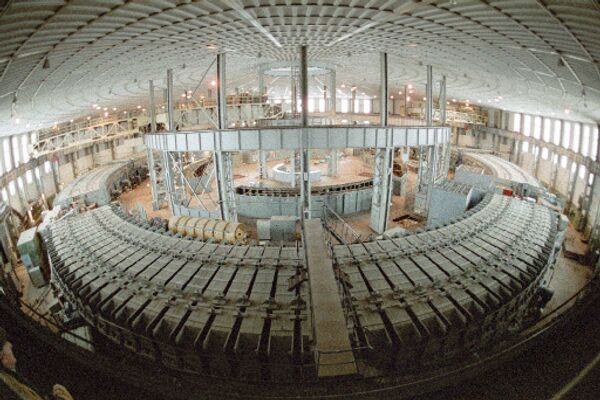By Anton Khlopkov,
director of the Center for Energy and Security Studies (CENESS)
The Middle Eastern states are actively seeking nuclear power. Of the Gulf countries, excluding Iran and Iraq, almost 20 agreements and MOUs (memorandums of understanding) on nuclear cooperation were signed during the last 18 months, with countries, possessing advanced nuclear technology, including Canada, China, France, Japan, Russia, South Korea, the U.K, and the U.S.
At present, the only nuclear energy facility in the region is the Bushehr nuclear power plant in Iran. Russian specialists are now completing the construction of the plant's first power reactor. The expected start-up date is some time in the spring of 2010. The region also has a few nuclear research facilities (in Israel, Iran, Egypt and Syria).
At the same time the region is on the top of the nonproliferation list due to the disclosure of undeclared nuclear activity in Iraq in the early 1990s and in Iran in 2002 (and Tehran’s lack of cooperation with the IAEA since then). Experts estimate that Israel has 60-80 nuclear devices. The country's government neither confirms nor denies this. In addition, during the 1990-2000s the Middle East was a key region for deliveries by an illicit nuclear proliferation network run by A.Q. Khan, including the supply of fissile material production technology and nuclear weapons-related design information. More recently, the IAEA is questioning possible undeclared nuclear installations in Syria. Nuclear energy development in the Middle East has therefore raised serious concerns over the issue of nuclear nonproliferation.
Other issues include the lack of specialists - or the expertise and technical capability to train such specialists locally; heightened security requirements in view of the terrorist threat in the region; and the need to set up national regulating agencies to oversee safe and secure nuclear energy development.
Such development requires a series of steps to be taken in the region as outlined below.
1. Due to a lack of expertise in the region and a lack of funds for nuclear studies in some Middle Eastern countries, a few joint multinational nuclear-research and training centers under IAEA safeguards could be established instead of individual state centers. Each center could specialize in one nuclear-related field. One center, for example, could specialize in nuclear powered desalination, a big issue for the region. Over 50% of all desalination plants around the world are located in the Middle East. In fact, according to initial plans from the 1970s, the Bushehr nuclear power plant was expected to be used partially for desalination.
2. Expanded international oversight of nuclear activities in the region should be implemented (after local ratification) with IAEA Additional Protocol, which provides the IAEA with extended authority to monitor civilian nuclear programs. As of November 2009, this Protocol is in place for over 90 countries; only two (Jordan and Kuwait) represent the Middle East.
3. A Middle Eastern nuclear-free zone is not likely to be established soon due to the peace process in the region. At the same time the states of the region could take confidence-building steps, which would create a more open atmosphere for further dialogue on the subject. Signing and ratifying the Comprehensive Test Ban Treaty by all the countries in the region could be the first step in this direction.
4. Greater international cooperation would result from a voluntary agreement prohibiting these countries from creating new uranium enrichment and SNF reprocessing facilities, the most sensitive nuclear technology. Bahrain, Saudi Arabia, and the United Arab Emirates (UAE) recently affirmed their intention to forgo sensitive indigenous fuel-cycle technology.
The Middle East has been a point of discussions during the last three Nuclear Non-proliferation Treaty Reviews and will no doubt continue to be in the spotlight during 2010 NPT Review Conference to be held in New York on May 3-28, 2010. Special attention should be paid to the lack of universality of the nuclear nonproliferation process in the region during the Conference debates. Israeli nuclear programs were almost ‘ignored’ (or its discussion was blocked by the United States) during recent international nonproliferation forums, while nuclear progress in Iran and Syria is sometimes exaggerated. So a balance should be reached between the issues of non-compliance, process consistency and nuclear energy development during Middle East nonproliferation discussions.
International forums on the future of the nuclear energy industry in the region like the ‘Middle East Nuclear Energy Summit’ to be held in Amman on March 21-24, 2010, could contribute a lot to the development of the peaceful use of nuclear energy in the region.



